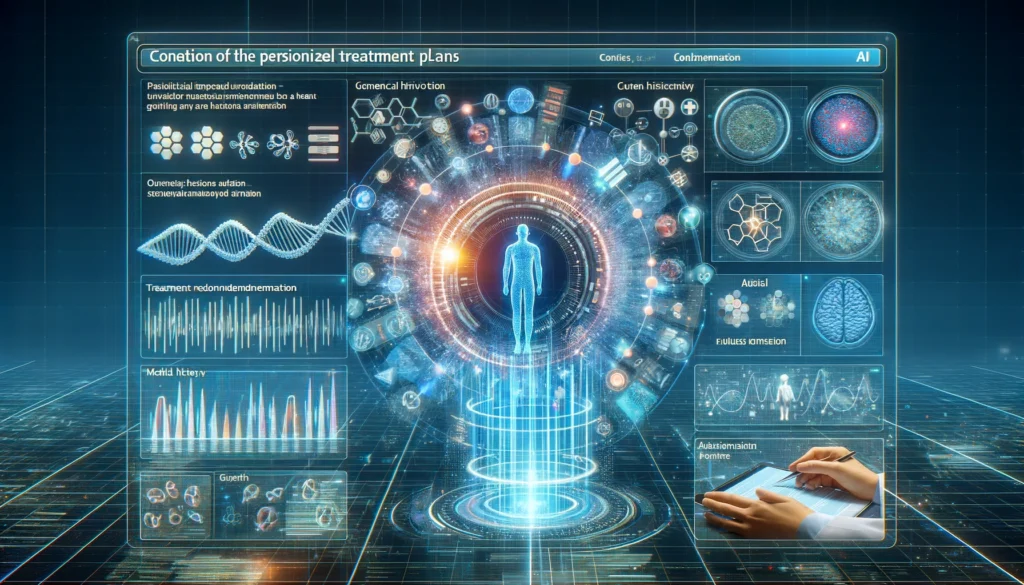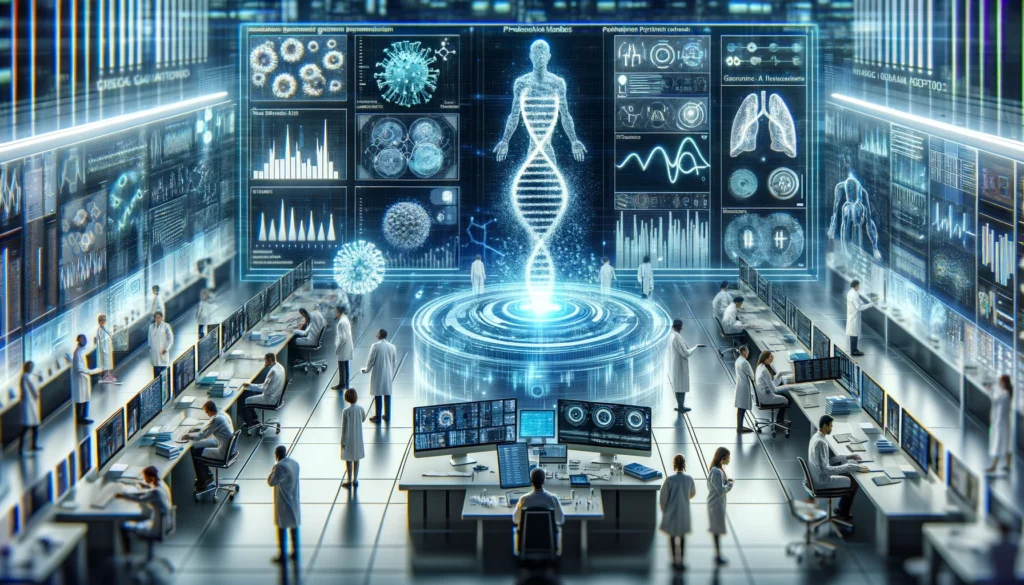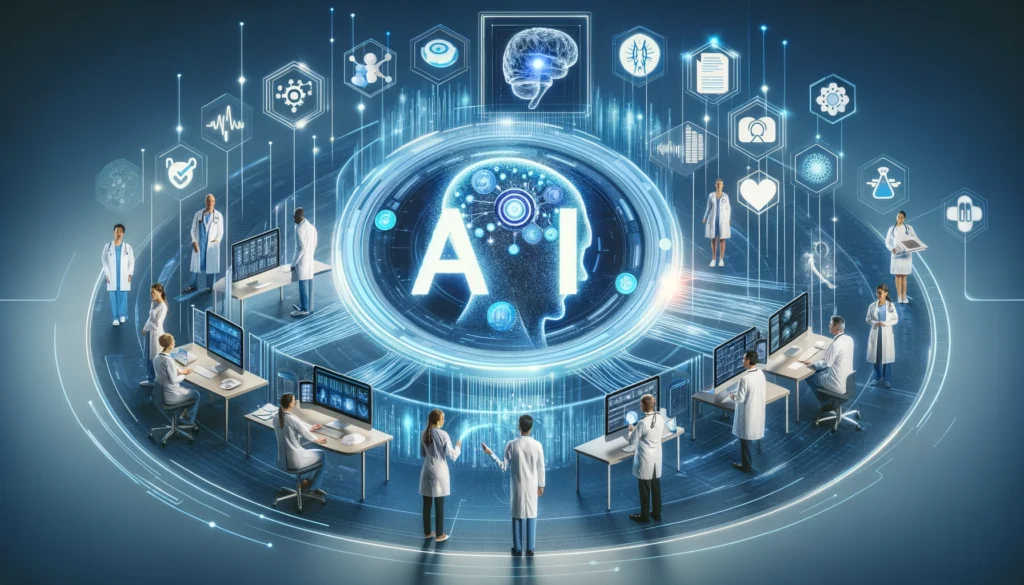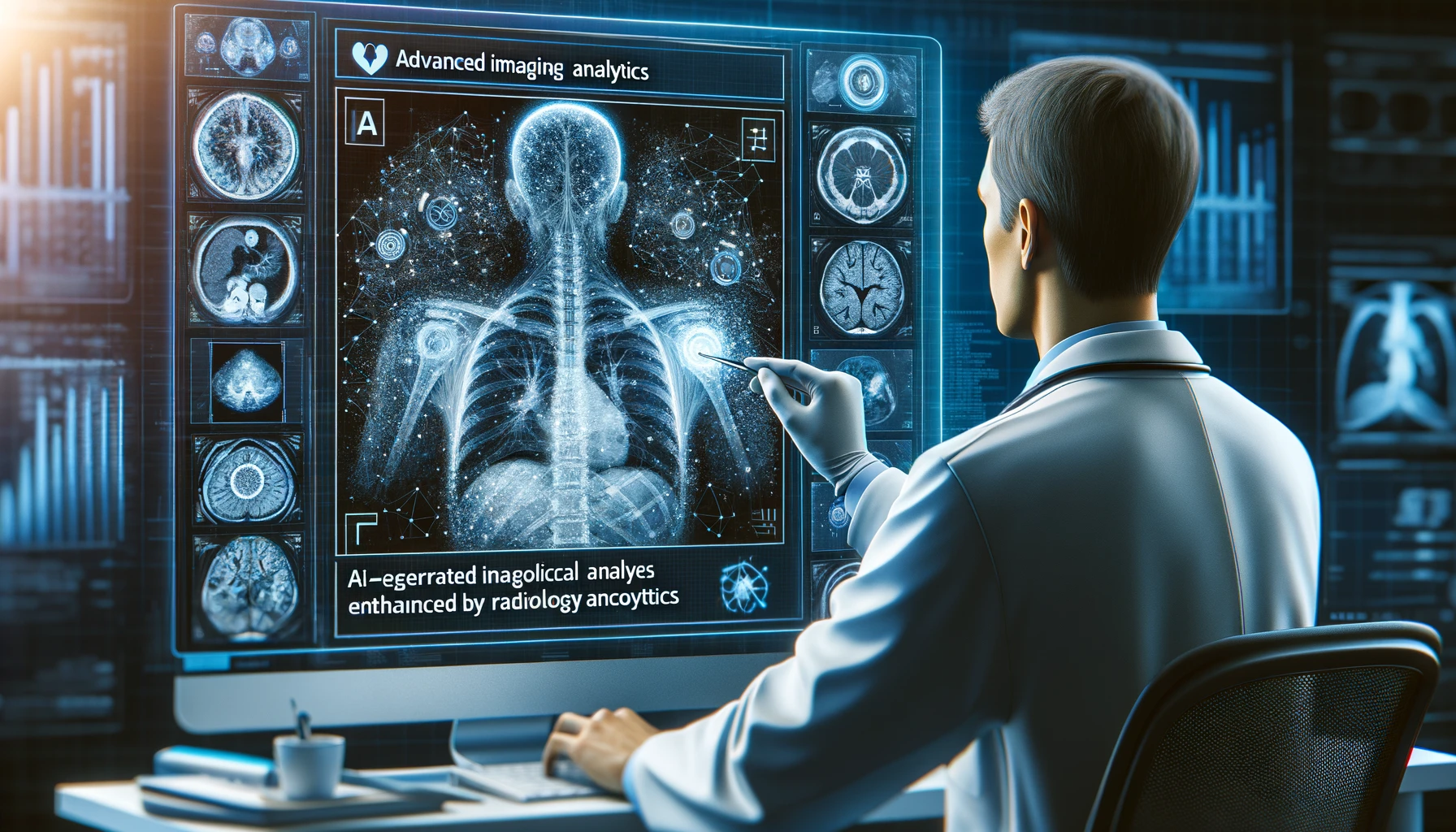Artificial Intelligence In Healthcare has emerged as a groundbreaking technology, revolutionizing the way we diagnose, treat, and monitor patients. With its ability to analyze vast amounts of clinical data quickly, AI is transforming healthcare research and outcomes, leading to more accurate diagnoses and personalized treatments. The potential applications of AI in healthcare are broad and far-reaching, ranging from early detection of diseases through radiological imaging to predicting outcomes based on electronic health records. By leveraging AI in hospitals and clinics, healthcare systems can become smarter, faster, and more efficient in providing care to millions of people worldwide. In this article, we will explore the benefits, challenges, and future of AI in healthcare.

Table of Contents
The Benefits of Artificial Intelligence in Healthcare
AI offers numerous benefits in healthcare, improving various aspects of patient care and operational efficiency. By harnessing the power of machine learning algorithms, AI can process large volumes of clinical data, identify patterns, and make predictions with higher accuracy than ever before. This enables healthcare professionals to make more informed decisions based on accurate information, leading to improved outcomes and reduced costs.

- Improved Diagnostic Accuracy – One of the most significant advantages of AI in healthcare is its ability to enhance diagnostic accuracy. Machine learning algorithms can analyze patient records, medical imaging, and genetic information to identify disease markers and trends that may go unnoticed by human doctors. For example, AI algorithms have been developed to analyze radiological images and detect abnormalities, such as tumors, with high precision. This early detection can lead to timely interventions and improved patient outcomes.
- Personalized Treatment Plans – AI can also contribute to the development of personalized treatment plans for patients. By analyzing large datasets and considering individual patient characteristics, AI algorithms can recommend tailored treatment options based on the patient’s unique needs. This personalized approach can lead to more effective treatments, better patient experiences, and improved overall healthcare outcomes.
- Efficient Healthcare Operations – AI has the potential to streamline various healthcare processes, leading to increased operational efficiency. Administrative tasks, such as paperwork and data entry, can be automated using AI, freeing up healthcare workers’ time to focus on patient care. For instance, generative AI can assist clinicians with note-taking and content summarization, ensuring comprehensive medical records while reducing the administrative burden. AI can also help with accurate coding and information sharing between departments, leading to smoother workflows and improved communication.
- Enhanced Patient Experience – AI technologies, such as natural language processing (NLP) and predictive analytics, can improve the patient experience by enabling more effective communication between healthcare providers and patients. NLP can help healthcare professionals deliver specific information about treatment options, allowing for shared decision-making and more meaningful conversations with patients. Additionally, AI-powered virtual nursing assistants, such as chatbots, can provide around-the-clock access to answers and support, empowering patients to take an active role in their healthcare journey.
- Advanced Disease Detection and Prevention – AI in healthcare has the potential to revolutionize disease detection and prevention. By analyzing vast amounts of health data, AI algorithms can identify patterns and detect early signs of diseases, such as cancer or infectious diseases. This early detection can facilitate timely interventions, leading to better patient outcomes and reduced healthcare costs. AI can also help monitor and track public health issues, such as outbreaks and epidemics, enabling healthcare organizations to take proactive measures for prevention and control.
Challenges and Considerations of Artificial Intelligence in Healthcare
While the potential benefits of AI in healthcare are immense, several challenges and considerations must be addressed for successful implementation and adoption.

- Data Privacy and Security – The use of AI in healthcare involves the collection and analysis of vast amounts of patient data. Ensuring data privacy and security is crucial to protect sensitive information from unauthorized access or misuse. Healthcare organizations must implement robust security measures and comply with data protection regulations to maintain patient trust and confidentiality.
- Ethical and Regulatory Considerations – AI in healthcare raises ethical and regulatory concerns that must be carefully addressed. The use of AI algorithms for decision-making should be transparent, explainable, and free from bias. Additionally, regulatory frameworks should be established to govern the development, deployment, and use of AI in healthcare to ensure patient safety, fairness, and accountability.
- Integration with Existing Systems and Workflows – Integrating AI technologies into existing healthcare systems and workflows can be challenging. Healthcare organizations need to ensure that AI applications seamlessly integrate with electronic health records (EHRs) and other clinical systems. Moreover, AI should enhance, rather than disrupt, healthcare professionals’ workflows and decision-making processes.
- Physician Acceptance and Training Artificial Intelligence in Healthcare – Physician acceptance and training are vital for the successful implementation of AI in healthcare. Healthcare professionals need to understand the capabilities and limitations of AI technologies to effectively incorporate them into their practice. Education and training programs should be provided to healthcare providers to enhance their AI literacy and ensure they can leverage AI tools effectively.
- Patient Trust and Engagement With Artificial Intelligence in Healthcare – Building patient trust and engagement is essential for the widespread adoption of AI in healthcare. Patients should be informed about the use of AI technologies in their care, including the benefits, limitations, and potential risks. Open and transparent communication between healthcare providers and patients can foster trust and empower patients to actively participate in their treatment plans.
The Future of Artificial Intelligence in Healthcare

The future of AI in healthcare is promising, with ongoing advancements and innovations shaping the landscape of medicine. As AI technologies continue to evolve, we can expect further integration into various healthcare domains, including diagnostics, treatment planning, drug discovery, and precision medicine.
- AI-Driven Diagnostics With Artificial Intelligence in Healthcare – AI has the potential to revolutionize diagnostics by analyzing medical images, genomic data, and clinical records with unparalleled accuracy. Machine learning algorithms can detect subtle patterns and deviations that may indicate the presence of diseases. This can lead to earlier and more precise diagnoses, enabling timely interventions and better patient outcomes.
- Precision Medicine and Personalized Treatments – AI in healthcare is driving the development of precision medicine and personalized treatments. By analyzing large datasets and considering individual patient characteristics, AI algorithms can identify optimal treatment options tailored to each patient’s unique needs. This approach can maximize treatment efficacy while minimizing adverse effects, leading to improved patient outcomes.
- Drug Discovery and Development With Artificial Intelligence in Healthcare – AI is also transforming the drug discovery and development process. Machine learning algorithms can analyze vast amounts of biomedical data to identify potential drug candidates and predict their efficacy. This can significantly accelerate the drug discovery timeline, reduce costs, and increase the success rate of bringing new treatments to market.
- Robotics and Minimally Invasive Surgery – AI-enabled robotics are revolutionizing surgical procedures, particularly in the field of minimally invasive surgery. AI-powered robots can assist surgeons in precise and delicate maneuvers, reducing the risk of complications and improving surgical outcomes. This technology enables less invasive procedures, faster recovery times, and improved patient safety.
- Remote Patient Monitoring and Telemedicine – AI in healthcare is facilitating remote patient monitoring and telemedicine, enabling healthcare providers to monitor patients’ health remotely and deliver care beyond traditional clinical settings. AI-powered devices and wearables can collect real-time health data, allowing for early detection of health issues and timely interventions. Telemedicine platforms equipped with AI can provide virtual consultations, improving access to healthcare services, particularly in underserved areas.
Conclusion

Artificial intelligence is transforming the future of healthcare, offering immense potential to improve patient care, enhance diagnostics, and streamline healthcare operations. By leveraging AI technologies, healthcare organizations can achieve better patient outcomes, optimize resource utilization, and advance medical research and innovation. However, successful implementation requires addressing challenges related to data privacy, ethics, integration, and trust. With careful consideration and collaboration between healthcare professionals, technologists, and policymakers, AI in healthcare can revolutionize medicine and pave the way for a more efficient and patient-centered healthcare system. Embracing the power of AI, we can unlock new possibilities and shape a healthier future for all.
FAQ’s
What are the primary benefits of implementing Artificial Intelligence in Healthcare?
AI in healthcare offers numerous benefits, including improved diagnostic accuracy through the analysis of medical imaging and patient records, personalized treatment plans tailored to individual patient needs, increased operational efficiency by automating administrative tasks, enhanced patient experiences through better communication, and advanced disease detection and prevention by identifying patterns and early signs of diseases.
How does AI contribute to diagnostic accuracy in healthcare?
AI enhances diagnostic accuracy by utilizing machine learning algorithms to analyze vast amounts of data, such as patient records, medical imaging, and genetic information. It can detect disease markers and trends that may be overlooked by human doctors, leading to early detection of conditions like tumors and facilitating timely interventions.
What challenges are associated with the adoption of Artificial Intelligence in Healthcare?
The adoption of AI in healthcare faces several challenges, including ensuring data privacy and security, addressing ethical and regulatory considerations to ensure AI decision-making is transparent and unbiased, integrating AI technologies into existing healthcare systems and workflows without disrupting them, and overcoming barriers related to physician acceptance and training.
What does the future hold for Artificial Intelligence in Healthcare?
The future of AI in healthcare is promising, with potential advancements in AI-driven diagnostics, precision medicine, drug discovery, robotic-assisted minimally invasive surgery, and the enhancement of remote patient monitoring and telemedicine. These innovations are expected to lead to earlier, more precise diagnoses, personalized treatments, accelerated drug development, less invasive surgical procedures, and improved access to healthcare services, especially in underserved areas.

